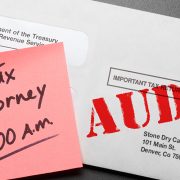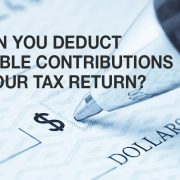MORE Act Approved By The House Judiciary Committee To End Cannabis Prohibition – If You Can’t Beat Them, Then Join Them!
Under Federal law (Controlled Substances Act 21 U.S.C. 801) marijuana is designated as a Schedule I controlled substance due to the historical belief that it has a high potential for abuse, no currently accepted medical use in treatment, and lack of accepted safety for use under medical supervision.
The federal penalties for possession of any amount of marijuana are as follows:
- First Offense – Misdemeanor involving up to one year of incarceration and $1,000 in fines
- Second Offense – Misdemeanor punishable by 15 days to 2 years behind bars and $2,500 in fines
- Third and subsequent offenses – Misdemeanor or felony punishable by 90 days to 3 years of incarceration and fines of up to $5,000.
The penalties for the sale of marijuana depend on the amount of marijuana you have been accused of selling or attempting to sell:
- Less than 50 kilograms – Felony punishable by up to 5 years in prison and/or up to $250,000 in fines
- 50 to 99 kilograms – Felony punishable by up to 20 years in prison and/or fines of up to $1,000,000
- 100 to 999 kilograms – Felony involving 5 to 40 years incarceration and/or fines of up to $2,000,000
- 1000 kg and up – Felony carrying a sentence of 10 years to life in prison and/or up to $4,000,000 in fines
As for the cultivation of marijuana, the federal authorities punish it on the basis of the number of plants you were caught growing:
- Less than 50 plants – Felony punishable by up to 5 years in prison and/or up to $250,000 in fines
- 50 to 99 plants – Felony punishable by up to 20 years in prison and/or up to $1,000,000 in fines
- 100 to 999 plants – Felony carrying a 5 to 40-year prison sentence and/or fines of up to $5,000,000
- 1,000 plants or more – Felony involving 10 years to life in prison and/or fines of up to $10,000,000
With aggravating factors such as a trafficking activity that results in an injury or death, a sale within 1,000 feet of a school, or a case involving five grams sold to a minor, the above penalties may increase dramatically.
How things have changed –
Medical marijuana is legal in 33 states.
The medical use of cannabis is legal (with a doctor’s recommendation) in 33 states and Washington DC. Those 33 states being Alaska, Arizona, Arkansas, California, Colorado, Connecticut, Delaware, Florida, Hawaii, Illinois, Maine, Louisiana, Maryland, Massachusetts, Michigan, Minnesota, Missouri, Montana, Nevada, New Hampshire, New Jersey, New Mexico, New York, North Dakota, Ohio, Oklahoma, Oregon, Pennsylvania, Rhode Island, Utah, Vermont, Washington and West Virginia. The medical use of cannabis is also legal in the territories of the Northern Mariana Islands, Guam and Puerto Rico.
Recreational marijuana is legal in 10 states.
Ten states and Washington DC, have legalized marijuana for recreational use — no doctor’s letter required — for adults over the age of 21. Those ten states being Alaska, California, Colorado, Maine, Massachusetts, Michigan, Nevada, Oregon, Vermont and Washington and the territory of Guam.
Department Of Justice preferring cannabis legalization.
Attorney General William Barr stated that he would prefer that Congress enact legislation allowing states to legalize marijuana instead of continuing the current approach under which a growing number of states have ended cannabis prohibition in conflict with federal law.
Marijuana Opportunity Reinvestment and Expungement (MORE) Act Approved By The House Judiciary Committee On November 20, 2019
The MORE Act (H.R. 3884), sponsored by House Judiciary Committee Chairman Jerrold Nadler (D-New York), would remove cannabis from the Controlled Substances Act (CSA) and set aside funding to begin repairing the damage of the war on drugs, which has been disproportionately waged against communities of color. Among other things, the MORE Act would also provide for resentencing and expungement of records for people previously convicted of cannabis offenses and would shield immigrants from being denied citizenship status over marijuana.
Chairman Nadler issued a press release stating “Our marijuana laws disproportionately harm individuals and communities of color, leading to convictions that damage job prospects, access to housing, and the ability to vote. Recognizing this, many states have legalized marijuana. It’s now time for us to remove the criminal prohibitions against marijuana at the federal level. That’s why I introduced the MORE Act, legislation which would assist communities disproportionately impacted by the enforcement of these laws. I am grateful for the leadership of Rep. Barbara Lee and Rep. Blumenauer, as well as other Members of Congress who have helped pave the way for this important measure. I look forward to moving this legislation out of the House Judiciary Committee, making it one step closer to becoming law.”
The House Judiciary Committee approved the MORE Act on a bipartisan vote of 24-10. This marks the first time that a congressional committee has ever passed a bill to remove marijuana from the Controlled Substances Act. The bill still must go to a vote to the full floor of the House before moving on to the Senate.
Higher Taxes Still Remain
While the developments listed above are favorable for cannabis business, it still remains to be seen when favorable changes will be made to the Internal Revenue Code which treats businesses in the marijuana industry differently resulting in such business paying at least 3-times as much in taxes as ordinary businesses.
Generally, businesses can deduct ordinary and necessary business expenses under I.R.C. §162. This includes wages, rent, supplies, etc. However, in 1982 Congress added I.R.C. §280E. Under §280E, taxpayers cannot deduct any amount for a trade or business where the trade or business consists of trafficking in controlled substances…which is prohibited by Federal law. Marijuana, including medical marijuana, is a controlled substance. What this means is that dispensaries and other businesses trafficking in marijuana have to report all of their income and cannot deduct rent, wages, and other expenses, making their marginal tax rate substantially higher than most other businesses.
Keep in mind that a change in the tax law could result only in prospective relief and have no impact on prior tax years.
Reporting Of Cash Payments Still Remain
The Bank Secrecy Act of 1970 (“BSA”) requires financial institutions in the United States to assist U.S. government agencies to detect and prevent money laundering. Specifically, the act requires financial institutions to keep records of cash purchases of negotiable instruments, and file reports of cash purchases of these negotiable instruments of more than $10,000 (daily aggregate amount), and to report suspicious activity that might signify money laundering, tax evasion, or other criminal activities. The BSA requires any business receiving one or more related cash payments totaling more than $10,000 to file IRS Form 8300, Report of Cash Payments Over $10,000 Received in a Trade or Business.
The minimum penalty for failing to file EACH Form 8300 is $25,000 if the failure is due to an intentional or willful disregard of the cash reporting requirements. Penalties may also be imposed for causing, or attempting to cause, a trade or business to fail to file a required report; for causing, or attempting to cause, a trade or business to file a required report containing a material omission or misstatement of fact; or for structuring, or attempting to structure, transactions to avoid the reporting requirements. These violations may also be subject to criminal prosecution which, upon conviction, may result in imprisonment of up to 5 years or fines of up to $250,000 for individuals and $500,000 for corporations or both.
Marijuana-related businesses operate in an environment of cash transactions as many banks remain reluctant to do business with many in the marijuana industry. Like any cash-based business the IRS scrutinizes the amount of gross receipts to report and it is harder to prove to the IRS expenses paid in cash. So it is of most importance that the proper facilities and procedures be set up to maintain an adequate system of books and records.
How Do You Know Which Cannabis Tax Attorney Is Best For You?
Given that cannabis is still illegal under existing Federal law you need to protect yourself and your marijuana business from all challenges created by the U.S. government. While cannabis is legal in California, that is not enough to protect you. It’s coming down that the biggest risk is TAXES. So it is best to be proactive and engage an experienced cannabis tax attorney in your area who is highly skilled in the different legal and tax issues that cannabis businesses face. Let the cannabis tax attorneys of the Law Offices Of Jeffrey B. Kahn, P.C. located in Orange County (Irvine), the Inland Empire (Ontario and Palm Springs) and other California locations protect you and maximize your net profits. Also, if you are involved in crypto currency, check out what a bitcoin tax attorney can do for you.









 Follow
Follow Follow
Follow